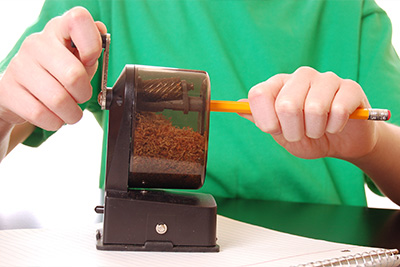Classroom Behavior Management (Part 2, Secondary): Developing a Behavior Management Plan
Assessment
Take some time now to respond to the items below. Please note that the IRIS Center does not collect your Assessment responses. If this is a course assignment, you should turn them in to your professor using whatever method he or she requires. If you have difficulty responding, go back and review the Perspectives & Resources pages in this module.
- At the beginning of the school year, you created a classroom behavior management plan, and for the most part it has been working well. Lately, however, you’ve noticed a number of students are coming to class unprepared, thus delaying the start of class. List two changes that you could make to your behavior plan to address this increasingly problematic behavior.
- Most teachers create procedures for routine activities (e.g., computer use, group work). Just as important are procedures for less frequent activities (e.g., attending an assembly, responding to a fire or tornado drill). Select a less frequent activity and write out a new procedure to address it.
- You developed a step-by-step crisis behavior plan to address serious problem behaviors that might arise in the classroom. Now consider what you would do if a behavior crisis occurred while your students were (a) in an assembly or (b) in the hallway. Create a separate crisis plan to address one of these situations.
- You created an action plan to effectively implement your behavior management plan. Midway through the school year, though, two new students are assigned to your class.
- How would you introduce these students to your classroom behavior management plan?
- How would you introduce their parents to the classroom behavior management plan?
- To complete the following activity, you will need to revisit (though not change) your classroom behavior management plan. Imagine you are teaching a 50-minute class and your students engage in the behaviors listed in the table below during that one period. Note: We recommend that you read through all of the behaviors once before beginning the activity.
- In the table below, indicate how you would address each of these behaviors. First check whether you would deliver a positive or negative consequence, then write down the consequence you would deliver.
- Let’s assume that you have implemented a comprehensive behavior management plan and these behavioral issues continued to occur. Which parts of your plan should you consider revising?
Student Behavior

Liam makes sure he is ready for class before the bell rings. He sharpens his pencil and begins his warm-up activity.
Should this receive a positive or negative consequence?


Your consequence

Aliya hasn’t turned in an assignment for two days. Today, however, she submits her completed assignment on time.



Andre trips Nicole as she walks to the front of the room, sending her glasses flying across the room.



Nicole calmly retrieves her glasses and writes the correct answer to her problem on the board.



During instruction, Carter and a few other students are on their cell phones.



Gentry walks in late for your class for the third straight day. She says her eyeliner was messed up and she just had to fix it.



After a reminder that cell phones should be in backpacks during instruction, Carter continues to text during class.



Nicola makes a paper airplane out of a love note and sends it flying across the room to Harper, his latest girlfriend.



Khalida has a learning disability and avoids answering questions in class. Today, however, she excitedly shares her ideas during group discussion.



During independent work, Carter once again is on his phone.



After multiple occurrences of disruptive behavior, your students actually work on their assignment quietly until class time is over.

